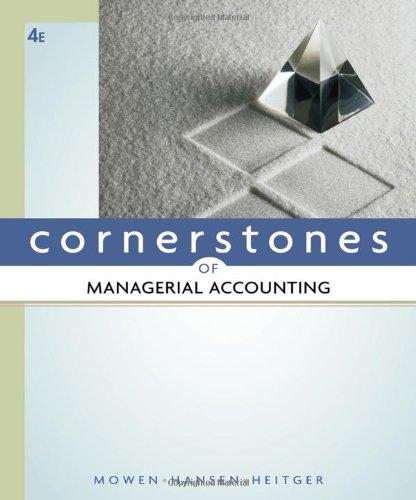Answered step by step
Verified Expert Solution
Question
1 Approved Answer
Young and Yang (2011) examined managers' stock repurchase decisions, under which firms buy back outstanding shares on the market, for a sample of U.K. companies
Young and Yang (2011) examined managers' stock repurchase decisions, under which firms buy back outstanding shares on the market, for a sample of U.K. companies during 1998-2006. As the authors pointed out, stock repurchases can be motivated by any of the following: (i) reducing the dilution of shareholder interests caused by exercise of ESOs, (ii) a desire to manage earnings, and (iii) compensation purposes.
Required
- Stock repurchases may decrease net income and, if so, may even decrease earnings per share (EPS). Explain how this could happen.
- A manager claims in an interview that stock repurchases are a better way to manage earnings per share than by manipulation of accruals. Do you agree? Explain why or why not.
- A compensation consultant claims that share buybacks are driven by provisions in managerial compensation contracts. Do you agree? Explain why or why not. Consider the effects of changes in share price on the manager's compensation.
Step by Step Solution
There are 3 Steps involved in it
Step: 1

Get Instant Access to Expert-Tailored Solutions
See step-by-step solutions with expert insights and AI powered tools for academic success
Step: 2

Step: 3

Ace Your Homework with AI
Get the answers you need in no time with our AI-driven, step-by-step assistance
Get Started


